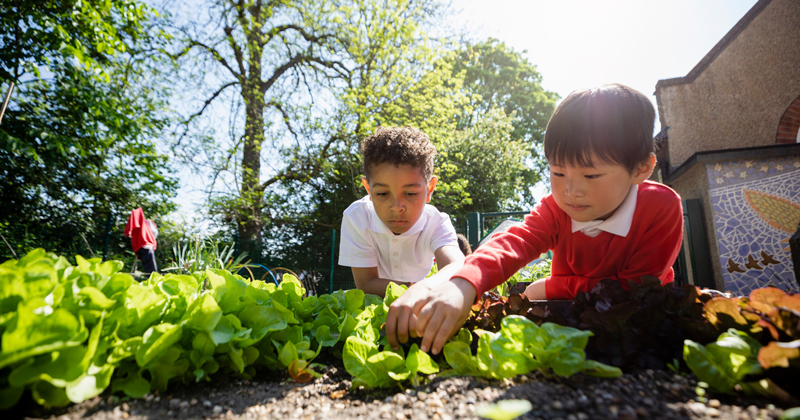Over several decades, governments of all stripes have encouraged schools to adapt and enrich their curricula with regular opportunities for outdoor learning. They have done so in droves, but an analysis of Ofsted reports shows accountability has not kept pace.
As far back as 2006, the then-Labour government published its Learning outside the classroom manifesto.
This was followed two years later by an Ofsted report with the same title, but adding the question ‘how far should you go?’ This concluded that, when planned and implemented well, outdoor education contributed significantly to raising standards and the quality and depth of learning.
In 2011, a senior HMI confirmed publicly that this report was the most compelling piece of evidence he had ever seen because learning was improved in all cases.
The following year, the coalition government published Leadership For Embedding Outdoor Learning Within The Primary Curriculum, encouraging primary school leaders to ‘develop a learning culture with the outdoors at its heart’.
Given all this positive endorsement, one might expect an analysis of 300 Ofsted primary school reports (covering schools with 3-11, 3-9 and 3-7 age ranges) published this year to highlight evidence of improvements in outdoor learning.
But the reality is that fewer than 5 per cent of the reports make any reference to subject-based outdoor learning experiences and outcomes.
Residential visits are mentioned in 15 per cent of these reports, comprising mainly lists of activities undertaken.
Some statements make outdoor education sound pedestrian
Even worse, some of the report statements make outdoor education sound pedestrian.
This begs two questions: what value is outdoor learning providing across the primary sector? And how are the best schools delivering on all of its promise?
Ambitions for outdoor learning for all year groups often feature on primary schools’ websites and in their brochures.
It’s not untypical to read statements like this, for example: “We prioritise hands-on learning experiences and real-world applications within the classroom and outdoor spaces to seamlessly integrate the various skills encompassed in all subjects.”
The comments in Ofsted reports, on the other hand, are at best superficial. They link outdoor learning to enrichment and engagement, but seldom to deep curriculum connections:
“Outdoor learning is an important, effective contributor to pupils’ personal development, for example growing vegetables, building dens and toasting marshmallows over an open fire, which pupils enjoy considerably.”
“Themed trips outdoors provide pupils with the excitement of new places and experiences, such as dipping their toes in the sea.”
“There is “a ‘buzz’ of learning and excitement, for example in the class where children demonstrated what they are learning about bees from a visitor to school.”
“Pupils enjoy a sleepover on the school grounds.”
“Pupils look after frogs, chickens and fish which helps to increase their independence.”
The jury’s out on whether the last one refers to the pupils’ independence or that of the creatures, but at least outdoor learning in these schools is noticed.
Staff in 95 per cent of the inspected schools I reviewed received no recognition at all. Many of these will have implemented a meticulously planned and resourced curriculum underpinned by meaningful outdoor learning.
This is unsurprising. After all, they were encouraged by Ofsted to do so as recently as 2021. The subject-specific Research Review Series bemoaned: ‘a paucity of meaningful fieldwork’ in geography; the need for pupils to encounter ‘laboratory’ and ‘fieldwork’ in science; and in history, ‘the importance of understanding […] historical context’.
Provision for outdoor learning has increased exponentially since the start of this decade. A plethora of organisations now support schools with training and guidance on planning and resourcing curriculum delivery outdoors.
Statistically, therefore, it is highly unlikely that the vast majority of schools in this sample had no subject-based outdoor learning during the inspection or no evidence of its central place in their curriculum.
Schools that have implemented meaningful outdoor learning deserve reports which clearly articulate the range and depth of pupils’ learning outside of the classroom, in it, and across both contexts.
The result of Ofsted’s failure to recognise best practice in this space can only be to stifle improvement. The new inspection framework must put this right.













Your thoughts